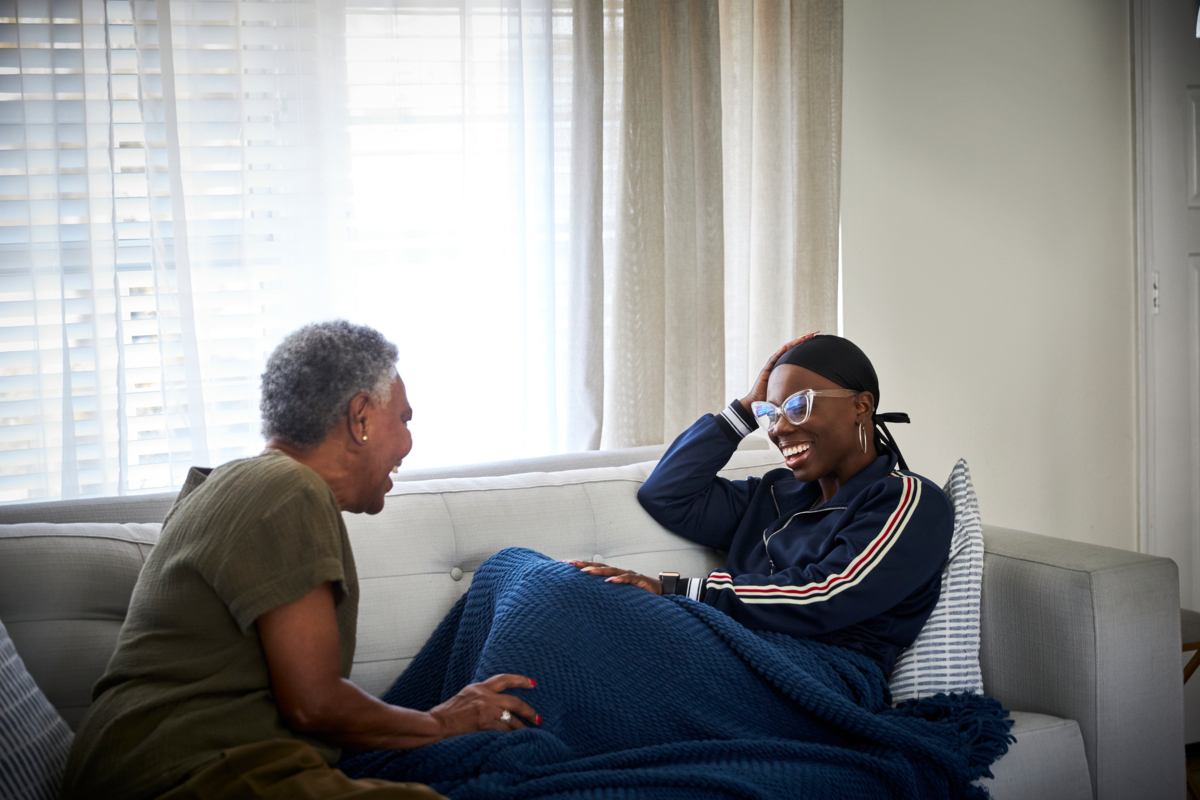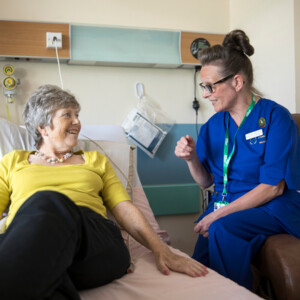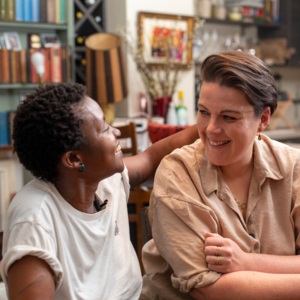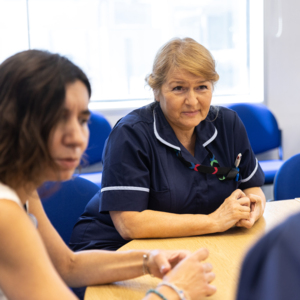
Understanding relationships between science, society, gender inequality and cancer
Throughout March, we will be publishing a series of blogs by guest authors around gender inequalities within healthcare, as part of International Women's Day on 8th March.
In the third of this series, Dr Clara Fabian-Therond discusses the relationship between science, society, gender inequality and cancer.
When calling out and taking action to eradicate inequality between genders a key area to look to is women’s health. Specifically, factors that limit “women’s opportunity to avoid cancer risks and capability to receive a timely diagnosis and optimal care” (The Lancet Commission 2023: 2114).
For the purposes of this blog, women will refer to women assigned female at birth. The previous blog in this series on equitable cancer care for the LGBTQIA+ community by Dr Alison Berner looks at how health inequalities can adversely affect trans and non-binary people, and LGBTQIA+ communities.
How medical anthropology can help us understand gender inequalities in healthcare
Many of the underlying dynamics that contribute to gender inequality in cancer have been discussed in a recent report published in The Lancet. Its findings offer a clear entry point into the role of medical anthropology, which takes a holistic, comparative, and fieldwork-based approach, to understand how beliefs, values and practices of people and communities shape and are shaped by wider societies’ socio-cultural and political dimensions. The Society for Medical Anthropology provides a more detailed definition of what medical anthropology is.
Indeed, within and beyond the subfield of medical anthropology we are indebted to scholars, whose work in healthcare settings illuminate historical and cultural contexts shaping experiences of care, and how these dynamics, underscore, amongst other things, questions of gender (inequality), race, power, culture, and politics Rapp 2000; Murphy 2012 Puig de la Bellacasa 2017).
For example, medical anthropologist Jessica Gregg’s book (2003) offers insight into the complex relationship between cultural constructions of female sexuality and cervical cancer in low-income areas of Brazil. Whilst other scholarship offers important understanding of transformations around breast cancer activism as scientific progress on breast cancer genetics, societal hope, economic investment, and gendered knowledge making intersect in novel ways (Gibbon, 2007).
Society and Medicine: are they linked?
The societal values and gendered dynamics that govern our everyday life become rooted and reinforced through our medical structures and embedded in people’s experience of care. Inequalities that we know exist within society commonly show up in our medical systems and vice versa.
As scholars Kerr et al. note, some clinical teams they worked alongside during a study across NHS cancer care and research “reflected gendered hierarchies” as there were fewer female consultants within, for example, lung cancer teams.
Meanwhile, the nurturing qualities of women were reflected by the fact that “the majority of nurses and clinical trial assistants were women” (Kerr et al. 2021, 227). This gender split in role types aligns with gender dynamics within society that see women disproportionately in care giving roles.
"I’m really sorry but sometimes you have to dig your heels in and not give up..."
Can we disentangle gender roles within medical structures?
An article on gender inequality, focused on a National Cancer Research Institute event, explored experiences of women at differing stages of their career in cancer research and care in order to pinpoint actions through which a feminist approach would tackle gender inequality.
These included:
- Ensuring greater numbers of female "mentors” to attract and help women feel a "sense of belonging”
- "Setting priorities in a male-dominated field"
- Reiterating a feminist approach to ensure women are confident and feel no need “to be apologetic for who we are”
- "Calling out poor behaviour against women”
Reading these women’s thought-provoking experiences encouraged me to return to my PhD research to explore what we could learn from women’s experience of care and how we can do more to amplify these experiences.
How women’s experience of care contributes to dismantling gender inequality
...having a female surgeon “felt quite comforting … at least she knows what it’s like, she’s got them as well."
Throughout fieldwork undertaken in late-stage cancer treatment settings, there were poignant moments that captured how trust and a sense of being cared for was crafted through what I described as gendered care, most obviously seen in the ovarian cancer treatment setting between a female practitioner and patient (Fabian-Therond, 2024).
One ovarian cancer patient described how having a female surgeon “felt quite comforting … at least she knows what it’s like, she’s got them as well,” she told me. Although she clarified that male surgeons can be equally good, she said her surgeon “was a breath of fresh air in comparison and very good.”
This experience is something we see reflected in society more widely, highlighting the importance for women in seeing themselves represented in positions of power and influence.
Interestingly, many patient narratives seem to reflect how the lived experience of cancer care instilled in them a moral and ethical desire to speak up, especially when they felt care could and/or should have been better.
One ovarian cancer patient told me of her care experience and subsequent decision to write a letter of complaint to highlight how the protocol determining access to germline genetic testing for the BRCA genes, prior to a cancer diagnosis, could (unintentionally) work against women, such as those “who don’t know their family history.”
Another ovarian cancer patient told me about her experience just prior to her diagnosis and described the need to speak up: “It wasn’t an easy thing to be taken seriously, that was the worrying thing …”
“I’m really sorry but sometimes you have to dig your heels in and not give up and be far more persuasive than you usually would be in situations like this, and be very, very assertive.”
What can we learn from these experiences?
Whilst not every example above speaks directly to gender inequality in cancer care, there are several reflections that can be taken from these stories:
1. Their stories illuminate the importance of listening to women’s voices, in all their diversity in order to understand how wider socio-cultural and political dynamics intersect with gender (inequality) in relation to the care experience of cancer prevention, diagnosis and treatment.
2. Their narratives reveal how, as women (and men) sought to carve out a “good life”, their lived experience evoked a deep sense of reflexivity and ethical practice related to the values, interests and challenges they confront and were confronted with, prior to, within and beyond their care pathway (Mattingly, 2014, 09).
3. These women’s narratives reflect a willingness to leverage their own embodied gendered knowledge and experience to speak out and question practices of care.
Thus, alongside wider conversations about how to achieve gender equality, in my mind, these examples underline why a feminist ethics approach helps identify and dismantle unequal power relations both within and beyond cancer research and care.
About the author
Dr Clara Fabian-Therond is a medical anthropologist who completed her Economic and Social Research Council funded PhD at University College London (UCL).
Clara’s research focused on understanding the social, ethical, political, and cultural aspects of molecular profiling technologies and associated personalised medicine therapeutics within late-stage cancer treatment settings, in the NHS. The themes in her PhD research reflect a number of anthropological themes, including the relationality of care; identity; subjectivity and experiences of bodily trauma, suffering, and intensities of hope.
Clara’s research is also interested in understanding how care pathways are changing as a consequence of personalised medicine. Specifically, she examines how pathways become socio-material and affective sites in which complexity, possibility, hope, suffering, uncertainty, and expectation intersect in particular ways to produce new kinds of ethical and moral practice.
About our information
-
1. Fabian-Therond, C., 2024. An Ethnography on Personalised Medicine in the Treatment Setting of late-stage Cancer Patients’. PhD thesis. University College London.
2. Gibbon, S., 2007. Breast Cancer Genes and the Gendering of Knowledge: Science and Citizenship in the Cultural Context of the 'New' Genetics. Palgrave Macmillan.
3. Gregg, J. L., 2003. Virtually Virgins: Sexual Strategies and Cervical Cancer in Recife, Brazil. Stanford University Press.
4. Mattingly, C., 2014. Moral Laboratories: Family Peril and the Struggle for a Good Life. University California Press.
More blogs from our International Women's Day series
Stories And Media
-
Blogs 16 Oct 2024June Davis, Lead Allied Health Professional and Nursing Advisor and Claire Taylor, Chief Nursing Officer share an overview the Aspirant Cancer Career and Education Development Programme (ACCEND)...
-
Blogs 25 Sep 2024In his latest blog, Chief Medical Officer and consultant oncologist, Richard Simcock, explores the role genomics and data can play in helping to alleviate uncertainty.
-
Blogs 13 Mar 2025We are partnering with mental health organisations across Northern Ireland to provide support to both patients and professionals. In this blog, we talk more about the organisations and the services...








